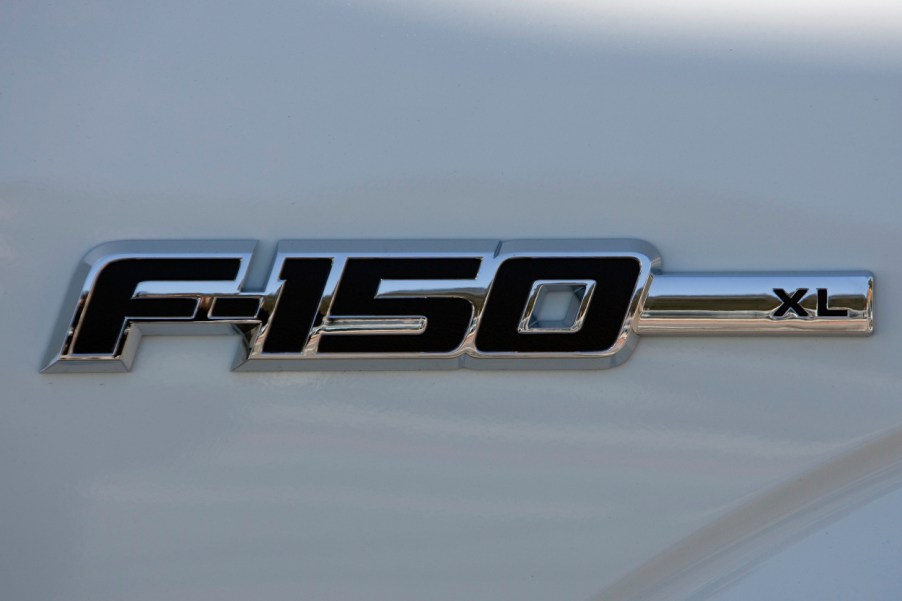
2020 Ford F-150 Owners Are Suing Over Excessive Oil Consumption
Serious issues on a fairly new vehicle are one of the most frustrating things ever. Something as old-school and sloppy as a truck burning too much oil is downright unacceptable. Oil burning should only happen to the vintage classics and diesels, not a 2020 Ford F-150. Well, That is exactly why F-150 owners are filing a class-action lawsuit.
The 2020 Ford F-150 and others are burning excessive oil
Car Complaints reports that a class action lawsuit has been filed against Ford for F-150s equipped with the 5.0-liter engines from 2018-2020. The trucks allegedly have a series of problems that are causing rampant oil consumption.
What happens when your car runs out of oil?
Engines need oil to lubricate all the extremely hot moving parts. If these parts aren’t lubricated, things go badly in a hurry. F-150 owners are saying the oil consumption is leading to the engine stalling or failing without warning. This means that while driving down the freeway at 70 mph, the engine could lock up, which would be extremely dangerous. Car Complaints reports that Ford allegedly hid this from consumers.

How can you sell a truck with a seized engine?
For very little money, that’s how. Owners of these F-150s are saying not only are their trucks dangerous, because of the loss of oil. The damage that happens internally when running an engine low on oil is catastrophic and often leads to virtually unfixable problems. So, when the owners of these trucks go to sell their ruined trucks, no one will buy them or allow for trade-ins.

According to the lawsuit, Ford is refusing to fix these trucks properly and denies that there is a manufacturing malfunction. Ford has been ignoring the problem until the damage is so extensive that the problem can no longer be denied but is then refusing to pay to fix the issues.
So, what seems to be the problem here?
The 5.0-liter engine, also known as the “Coyote,” is the one in question. Car Complaints says the engine can hold 8.8 quarts of oil. As with many newer vehicles, the F-150 has what Ford calls the Intelligent Oil-Life Monitor that alerts the driver when the oil needs service. Basically, F-150 owners of these specific models and years are getting alerts far too early that oil needs changing. Some owners have seen alerts as early as 3,000 miles after a fresh oil change. That is far too soon.
Burning too much oil is really bad
According to the lawsuit, these F-150 engines have a defect allowing oil to get into the combustion chamber. Unlike an oil leak, where the layperson can see oil stains and be made aware of the issue, in this case, the oil is getting burned, making oil consumption less noticeable until it’s too late.
This oil-burning also leads to immense carbon buildups resulting in lower fuel efficiency. This also damages the ignition and emissions equipment. Simply put, a car burning too much oil reeks all kinds of havoc. Allegedly part of the problem lies in the piston ring assemblies letting the oil into the combustion chambers.
According to Car Complaints, some allegations suggest that “the Ford F-150 oil consumption issues are caused by inadequate positive crankshaft ventilation (PCV) systems which fail to reduce pressure within the crankcases caused by combustion gases escaping from the combustion chamber, past the piston and oil rings and into the crankcases.”
Ford addresses the F-150 oil consumption issues
The lawsuit mentions multiple of Ford’s service bulletins. In March of 2019, the Ford service bulletin said to replace the PCV valves and oil filter, then check your F-150’s oil every 200 miles to monitor its levels.
Customers would then be asked to return after 3,000 miles for inspection. If the problem persisted, the tech was supposed to replace the engine long block assembly. This job took 12 hours to complete. After May of the same year, Ford released another bulletin telling mechanics to stop replacing engines and simply add more oil.
After multiple other bulletins and defects causing this excessive oil consumption, the class action suit was filed in Michigan.
If you have one of the affected models and need more info, the plaintiffs are represented by the Miller Law Firm, P.C., Sauder Schelkopf, Handley Farah & Anderson PLLC, and Baron & Herskowitz, according to Car Complaints.



